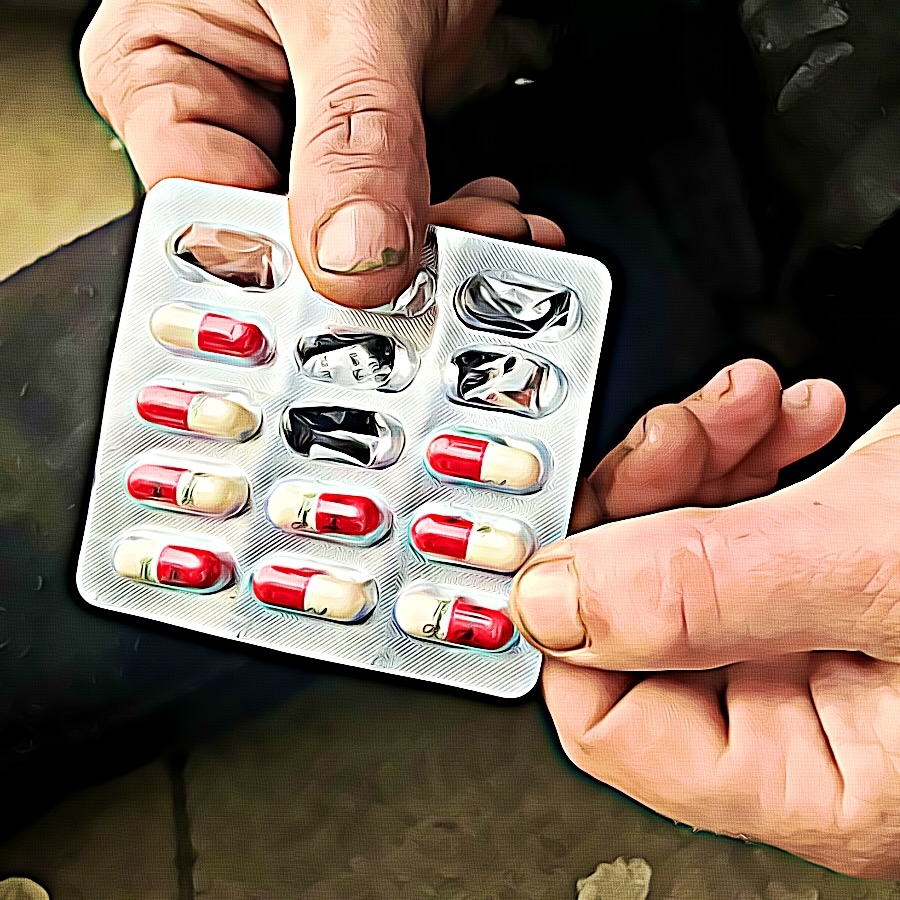There are times when we need to take specific medications to treat whatever’s ailing us. Conversely, if handled irresponsibly, some of these medications can be dangerous to our health because they can be addictive. One perfect example of this is Lyrica.
Lyrica is an anti-seizure medication treating other neurological disorders such as fibromyalgia and migraines. The addictive part comes into play when used for off-label purposes by people trying to self-medicate for the aforementioned illnesses or some other disorder. This can be dangerous because Lyrica’s disease affects different people differently. When you add Lyrica into the equation, it can be hazardous for a person.
Beyond that, there’s more to Lyrica addiction than it seems, which we’ll discuss. Read on below to get started.
What Lyrica Addiction Feels Like
Like any other medicine, it’s important to remember that everyone responds to Lyrica differently, and it’s a dangerous substance to consume in high doses. This is why it’s necessary to have a conversation with your physician about it if you have any desire to take it.
The reason why it’s so easy to become addicted to Lyrica is because it’s such a potent medication. It works quickly and effectively, and it can have a powerful impact on those who take it for extended periods. The withdrawal symptoms of this drug are often severe, so people who are addicted to it don’t want to give it up. This is why they often find themselves taking extra doses or bingeing.
Signs That You’re Addicted to Lyrica
The first and foremost sign that you’re addicted to Lyrica is if you enjoy taking it, even if you don’t need to. Not only that, but the wrong dosage can also get you addicted because you’ll need more and more of it to feel the same effect.
Beyond that, there are also more symptoms of Lyrica addiction. These include:
- Inability to have a normal conversation with others
- Lack of motivation
- Fatigue
- Irritability
- Hallucinations
- Delirium
- Hypertension
- Feelings of being disconnected from reality

How Lyrica Works
Lyrica is a selective serotonin and norepinephrine reuptake inhibitor (SNRI). This means that it influences the serotonin and norepinephrine neurotransmitters in our brains. Serotonin is the neurotransmitter that makes us feel happy and relaxed. Norepinephrine is the neurotransmitter that makes us feel alert. When Serotonin and norepinephrine levels are balanced, we’re happy and content. If the levels are imbalanced, we could have different feelings, from depressed to manic.
Lyrica works to help balance these neurotransmitters by preventing them from being reabsorbed by neurotransmission target cells. This means that these neurotransmitters are raised in the brain, which improves our mood and relieves symptoms in people.
Side Effects of Lyrica
Aside from the possible addiction, Lyrica also comes with many side effects. These include:
- Inability to concentrate
- Dizziness
- Depression
- Heart palpitations
- Stomach pain
- Inability to sleep
The side effects of Lyrica can be severe, so not everyone can take it. If you’re taking Lyrica for an off-label purpose, you must make sure that it’s safe for you to take. If you’re taking it for seizures, it’s still possible to become addicted to Lyrica.
Treating Lyrica Addiction
If you believe that you’re addicted to Lyrica, it’s time to get help from a professional. You should go to your doctor, who can help you safely withdraw from the drug and get you on the road to recovery. However, because Lyrica addiction is so risky, some doctors can’t help you. You may need to find a psychiatrist who can.
While there are drugs that you can take to help get rid of Lyrica addiction, there are also holistic approaches that can be used. These include:
Exercising
Exercising helps because it rids your body of the drug quickly. It also boosts your natural endorphin levels, which will give you a better mood.
Therapy
Talking to a therapist is a great way to get rid of a Lyrica addiction. Not only that, but a therapist will help you come to terms with the trauma that may have led you to self-medicate in the first place.
Meditation
Meditation helps to quiet the mind and reduce stress. If you’re suffering from Lyrica addiction, your mind may be overstimulated, causing the cravings. Meditation is a great way to calm your thoughts and find some relief.
Taking Part in Support Groups
Support groups are a great way to get rid of a Lyrica addiction because they’ll help you stay close to like-minded people fighting their own battles, which can help your ego and self-esteem.
Going to Counseling
If you’re suffering from a Lyrica addiction, you may have some other issues in your life that you need to address. A counselor can help you come to terms with these issues, which will help you stay sober.
Inpatient Rehab
If you need a more intense treatment for your Lyrica addiction, inpatient rehab might be the right choice. You’ll receive the right amount of medical care and supervision to ensure that you get well. Also, a residential rehab facility is a great place to make new friends, which is necessary for your recovery.
Lyrica Withdrawal
If you’re trying to detox from Lyrica, you should be aware of the withdrawal symptoms that you might experience. These include:
- Upset stomach
- Confusion
- Headache
- Nausea
- Shakiness
- Loss of appetite
The severity of these symptoms will vary depending on how long you’ve been taking Lyrica and the dosage. If you’re trying to detox from Lyrica, you must have a medical professional on hand to help you. They can administer medication when necessary to help you feel better.
If you’re experiencing any of the symptoms of Lyrica withdrawal, you mustn’t stop taking Lyrica suddenly. If you do, it could cause serious health problems. Instead, your doctor can help you taper off the medication to avoid complications.
Preventing Lyrica Addiction
If you believe that you’re at risk for Lyrica addiction, you mustn’t start taking it. If you do, one of the best ways to prevent addiction is to make sure that you follow the tips mentioned earlier. You should also participate in cognitive behavioral therapy to help you avoid any possible triggers.
When you’re a potential addict, the best thing you can do is be aware of the risks of taking a new medication. If you’re worried about Lyrica addiction, you should contact your doctor before making any decisions about taking it.
If you’re suffering from addiction to Lyrica, it’s time to get help. This is why finding a doctor who is more than happy to help you is vital in your recovery.
Finding the Right Doctor
When you need a doctor knowledgeable about Lyrica and its potential for addiction, it’s essential to research and ask questions before choosing a therapist. You’ll want to make sure that the doctor you select is well-versed in the use of Lyrica and its possible side effects, including addiction. You should also talk to other patients your doctor has treated to see what they have to say.
Conversely, your doctor may also recommend a health or rehab facility that you can go to. You must choose a medically supervised place so that you suffer fewer complications during your treatment and are safe at all times.
If you’re looking for a rehab facility to help you get rid of your addiction, you should talk to the staff to see if they have the resources to help you with your treatment. For example, they should offer integrated therapies such as cognitive behavioral therapy (CBT), which can help you to avoid future triggers. You should also be able to access support groups and a 12-step program that can help you stay sober.
Conclusion
Getting rid of your Lyrica addiction can be difficult, but you’re not alone. Thousands of people try to get rid of their addiction to Lyrica every year, and it’s possible if you try hard enough. Just be sure to look to people around you for support, follow your doctor’s orders, and live a happy, drug-free life again.
Source: https://www.ncbi.nlm.nih.gov/pmc/articles/PMC8411313/

